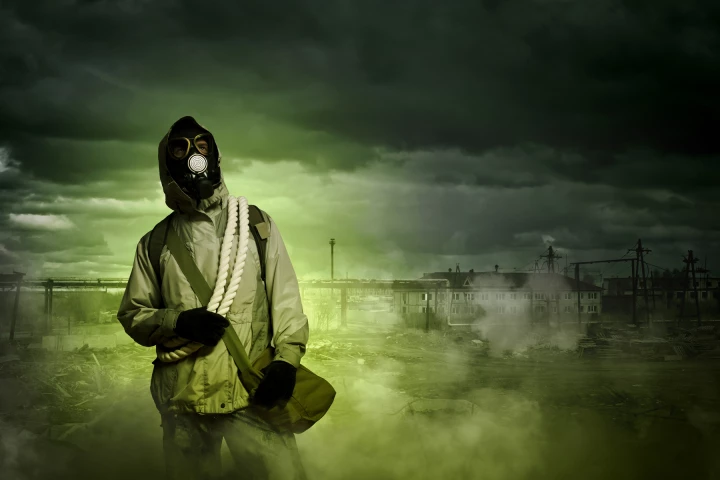Radioactivity
-
Wild boar in the woods of Austria and Germany have levels of radioactivity that makes their meat unsuitable for eating. Once thought to be the result of the Chernobyl nuclear accident, new research points to another, darker, source of contamination.
-
Radioactive isotopes found in meteorites suggest a supernova went off right near the Sun as it was forming – but that should have blasted the young solar system away. So how did we survive? A new study proposes an explanation.
-
Sinclair International has begun human trials of a new anti-radiation drug called HOPO 14-1 that is designed to help decontaminate those who have been exposed to radioactive elements as a result of a nuclear accident or dirty bomb attack.
-
Russian Defence Minister Sergei Shoigu told his NATO counterparts that Ukraine was planning to detonate a radioactive dirty bomb to discredit Russia. The allegation raises the question, what is a dirty bomb and how dangerous is one.
-
Arkenlight and Axorus have teamed up to prototype the first artificial neuron powered by a diamond betavoltaic battery made from nuclear waste. The goal is to develop medical-grade implants with energy sources that will last decades without charging.
-
Perovskites are quickly emerging in the solar energy field, thanks to their ability to convert photons into electricity. Now this process has been tweaked to pick up neutrons instead, making an effective detector for leaks from radioactive materials.
-
A team of researchers is using state-of-the-art forensic techniques to solve the riddle of the origin of uranium cubes that were used as part of the Nazi effort to develop nuclear weapons during the Second World War.
-
As work continues to clean up the mess left by the meltdown of Fukushima Daiichi Nuclear Power Plant in 2011, scientists are enlisting some local help in their efforts to survey the damage, in the form of rat snakes that frequent the area.
-
To reduce high-level radioactive waste and make nuclear reactors more economical, researchers at the Pacific Northwest National Laboratory are working on ways to use real-time spectroscopic monitoring to improve the recycling of spent nuclear fuel.
-
Our story on NDB's self-charging nuclear diamond batteries generated a lot of heated discussion, so we reached out to the University of Bristol, where the technology was invented, to discover exactly what these diamond betabatteries can and can't do.
-
A new study has demonstrated how the atomic bomb tests from the Cold War era could help fill in some of the blanks for marine biologists, with scientists using nuclear isotopes to measure the age of the whale shark for the first time.
-
During and after nuclear bomb tests, levels of the radioactive isotope carbon-14 spiked in the atmosphere and in our bodies. Now, researchers have used that to carbon date our immune cells, helping solve a mystery about how our immune systems age.
Load More











